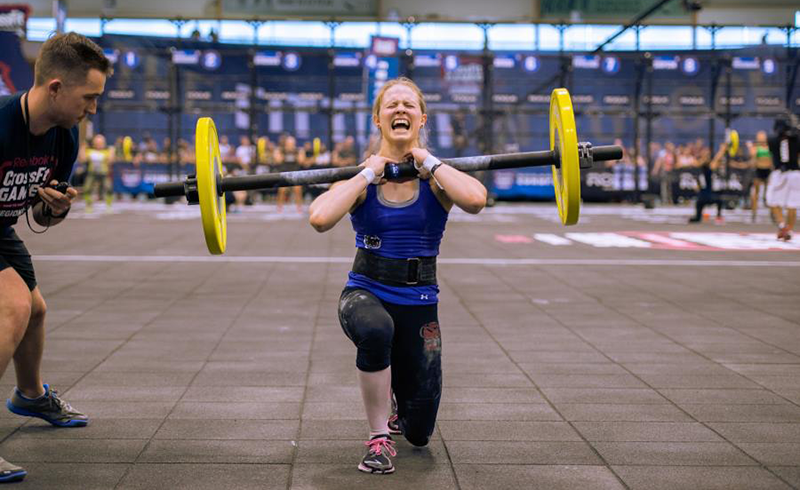An athlete participates in sports for a variety of reasons and their motivation to continue and excel can be extrinsically or intrinsically based. Athletes who are intrinsically motivated participate in sports for internal reasons, such as the enjoyment of the sport and to improve their skills. Extrinsically-motivated athletes participate in sports for external reasons, such as awards and trophies or to not disappoint a family member or friend.
When an athlete focuses on the internal rewards and is therefore, intrinsically motivated, they are more apt to stay focused, have more confidence and self-efficacy, have more satisfaction, and are less stressed when they make a mistake. On the other hand, extrinsically-motivated athletes who seek out external rewards are more likely to be anxious, fear failure, and show less interest towards achievement.
To keep your athlete motivated, focus on intrinsic motivational factors such as improving their performance, their “Why,” staying positive, being mindful, and setting goals.
Focus on Improving Performance

Remind your athletes to compares themselves only to their past performance. Comparing their performance to other athletes is a quick way to demotivation. Of course, part of competing is comparing athletes, but to keep an athlete motivated, it’s better to focus on their past performance. Show them how they’re improving from before. Use metrics and data to show them their improvements instead of where they placed in an event or against another athlete.
Ask Them Their “Why”

Everyone has a reason for doing what they do. When you have an athlete who is losing motivation, ask them their “why.” Why do they participate in their sport? What makes them continue on? What made them start in the first place? Can they remember the first time they participated and what that felt like?
When you form a sense of purpose for the athlete, it also creates an environment of self-development and growth. This takes time and patience, but when an athlete finds their purpose they will most likely continue to reach their goals with motivation and inspire others.
Stay Positive

A study published by The Journal of Sport & Exercise Psychology found that coaches who were positive, encouraging, and provided data-based feedback helped develop an athlete’s intrinsic motivation as opposed to coaches who ignored an athlete’s successes and failures. As a coach, focus on the positives while also helping the athlete grow. The “sandwich method” is most often used when providing constructive feedback: provide the athlete two positives and between them, include something they need to improve. This way, the athlete hears about their positive attributes and is more likely to work harder on the aspect they need to improve knowing they are still doing well.
Additionally, staying positive is considered a “mentally tough” attribute according to a study published by The Journal of Applied Sport Psychology. Athletes are “mentally tough” when they can remain calm, relaxed, and energized in difficult situations as well as have the right attitudes regarding problems and stress. As a coach, lead by example by remaining calm and having the right attitude in response to unfortunate circumstances.
Mindfulness

Mindfulness is defined as being aware of your surroundings while focusing on the present moment. When you’re mindful in your sport, you’re fully present in what you’re doing at that moment, also known as “achieving a state of flow.” Learning to prepare psychologically in addition to physically and tactically, helps athletes stay focused, motivated, and improves their performance.
Mindfulness helps athletes disconnect from negative or anxious thoughts. Instead of thinking “I can’t catch the racer,” a mindful athlete will think “Right now, I’m having a thought that I cannot catch the racer,” but they do not hold on to that thought. They let the thought go and instead, focus on their breathing or technique.
Set Goals

The biggest factor in keeping an athlete motivated is setting attainable yet challenging goals. Having a direction helps an athlete stay motivated or realize they no longer want to participate in the sport. Ask them if they want to continue this and if so, are they going to do everything they can to be the best athlete in their power? If they want to be the best, they need long-term goals. Long-term goals will help remind your athlete why they’re doing what they’re doing; why they’re training as hard as they are during times of low morale. It’s their long-term goal, their “why,” that will keep them going.
Also, strive for short-term goals because accomplishing goals, whether big or small, gives an athlete additional motivation to keep striving toward their long-term goal.
Remember that every athlete you train is different and are uniquely motivated for a variety of factors. While one athlete may positively react to negative reinforcement, another athlete needs the positive encouragement to keep going. On the other hand, one athlete may be able to easily adopt a mindfulness practice, whereas it’s like a foreign language to another. Being a great coach means adapting and leading your athletes on the path to a stronger version of themselves. Get to know your athletes on a deep level to know which motivational factors will work best for them.
Thanks to my patrons who make my writing possible. You can become part of our club here:
Become a Patron!